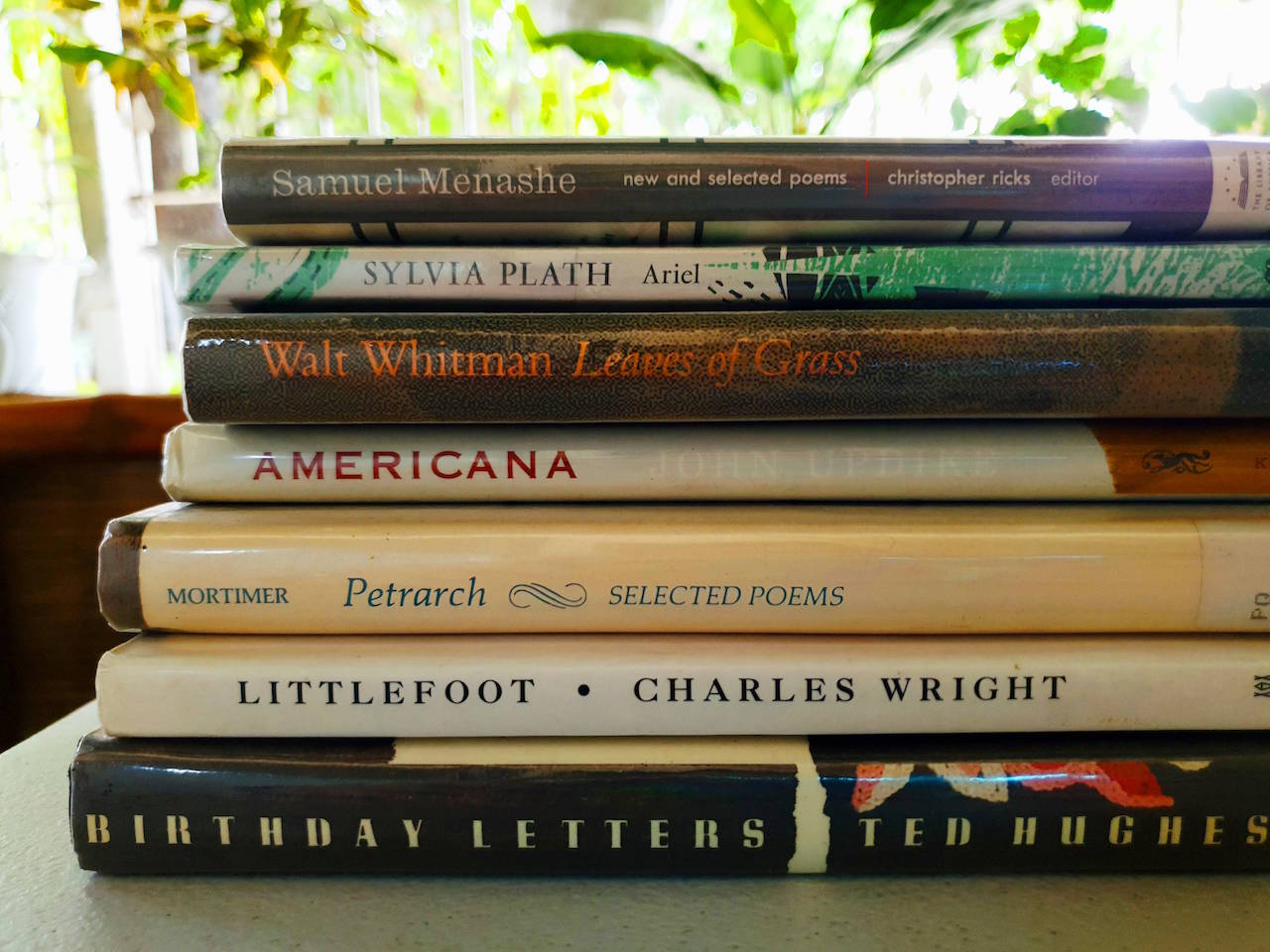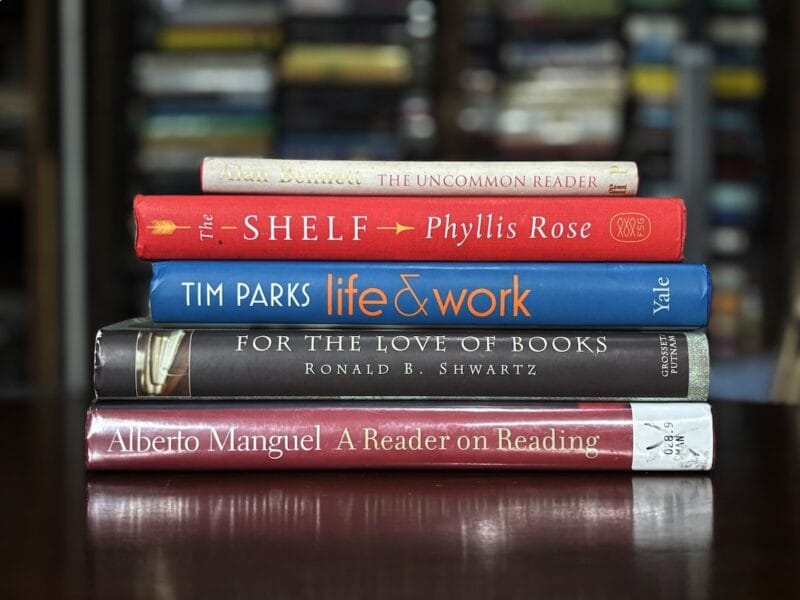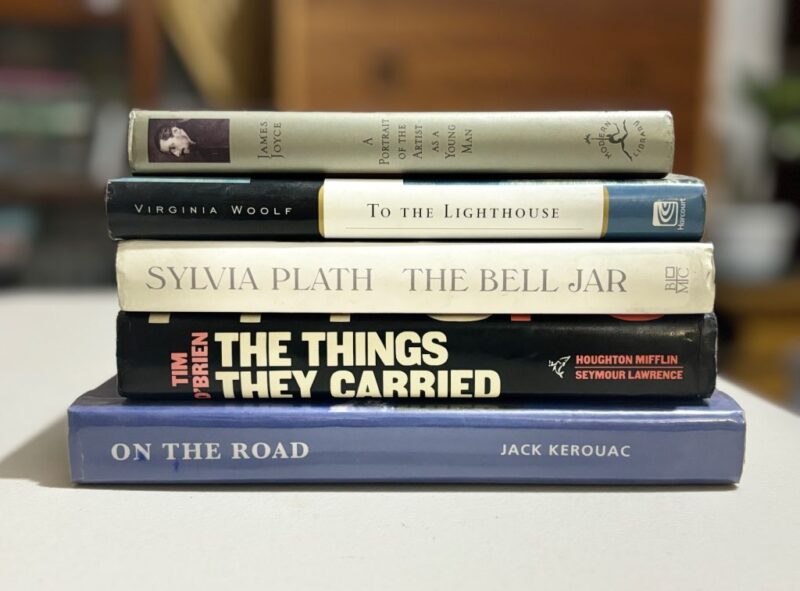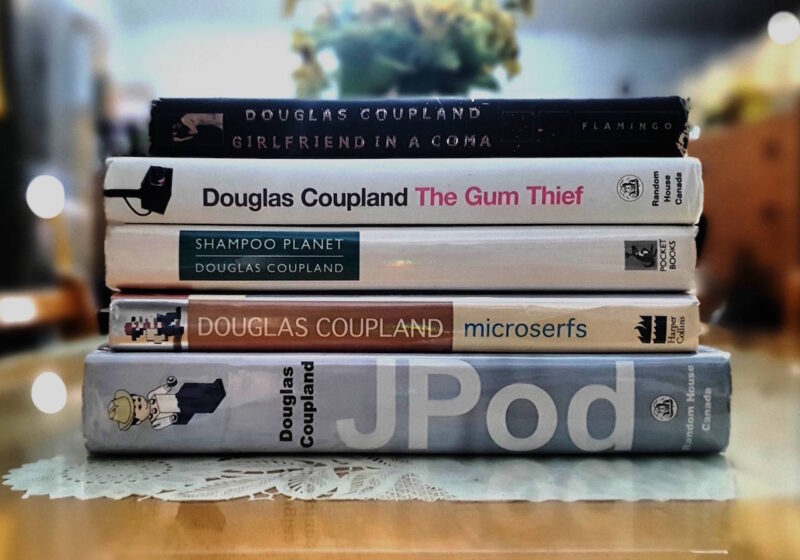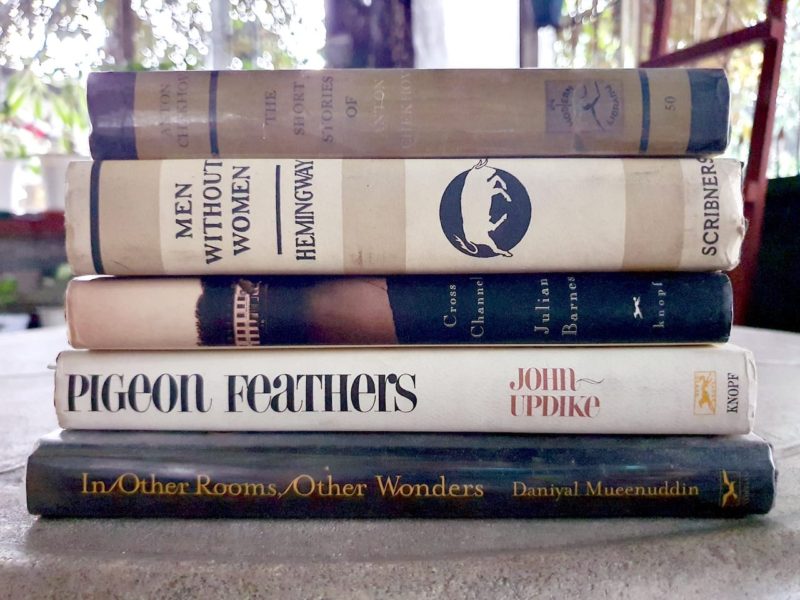Samuel Menashe: New and Selected Poems (2005) (ed. by Christopher Ricks)
Samuel Menashe’s poetry is distinctive for its solitary contemplative strength and its intense musicality and precision of construction. Christopher Ricks describes it as having the bravery of humor, backed by the reverence of innocence, yet it is also a poetry of the commonplace. Even the briefest poems here provide expansive viewpoints, making even the most inconspicuous of things and tiniest of natural forms very intriguing.
Ariel (1965) by Sylvia Plath
The themes of death, suicide, and melancholy permeate Ariel, a collection of poetry by Sylvia Plath. Sadly, these are the same themes that appear to have occupied Plath’s thoughts before she took her own life not long after its publication. In the title poem, the speaker recalls the terrifying experience of a perilous horseback ride, her mental and emotional transformation, as she comes face to face with her own mortality. Before the horse “Ariel” throws herself into a full charge, there is an interval of calm that the poet refers to as “stasis” at the beginning of the poem.
Leaves of Grass (1855) by Walt Whitman
Leaves of Grass is a compilation of Walt Whitman’s poems from throughout his life, arranged thematically, with the final version—which Whitman worked on until a few months before his death—released in 1891. The book is not particularly concerned with topics of faith or spirituality, instead centering its attention on physicality and the world of things.
Whitman consciously avoided a traditional chronological structure for the work because it was the poetry’s trip that interested him, with the hope that through contemplating the book’s words and topics, the reader would begin to feel a sense of identity taking shape. The poems, which are very loosely related to one another, are a celebration of Whitman’s philosophy of life and mankind and an ode to the beauty of the natural world and the unique contribution each person may make to it.
Americana (2001) by John Updike
As though dwelling too long on any one object would be a sin against the natural democracy of the universe, many of John Updike’s poems have an erratic, episodic quality. In this book, he masterfully mixes stories about mortality, travel, and the deterioration and destruction of the human body. While Updike does not shy away from exploring the tragic side of beauty, the content offered here is undeniably exquisite. Like his writing, Updike’s poetry is a kind of generosity; its unbounded compassion betrays a sense of self-satisfaction—the meandering ode to airports and the large American landscape starts the book with its title poem.
Petrarch: Selected Poems (1977) (trans. by Anthony Mortimer)
In this book of poems, Anthony Mortimer provides us with the Italian original and his own English translation of 46 of Petrarch’s 366 poems that make up the Canzoniere. Most of the poems that Mortimer translated here are sonnets, which show that Petrarch liked that form. However, there are also two canzoni, two madrigals, and a sestina, which show that Petrarch used those other forms in a balanced way.
Littlefoot (2008) by Charles Wright
Littlefoot is a lengthy meditation on death and the afterlife in which Charles Wright looks to the heavens for a guide and some last instructions. This collection of poetry is a cycle, and it features Wright’s assured linguistic navigation of aging, philosophy, and educated guesses. The poet can’t help but pose the pressing question, “Will you miss me when I’m gone?” which is sown with the words of ancient love ballads and spirituals. There is also loneliness, resignation, and a joyful cry that all things come from our spiritual wanderings, even though we can’t go back to Earth.
Birthday Letters (1998) by Ted Hughes
The death in 1963 of Ted Hughes’ estranged wife Sylvia Plath, as well as their well-documented, politically charged, “explosive” marriage, are widely recognized as the inspiration for this collection of 88 poems. Hughes and Plath’s meeting, wedding, her shock treatment as a college student, the turbulence in their relationship’s dissolution, and the effect of her death are all addressed in the Birthday Letters collection.
Further Reading
Undersung | On the Pleasure of Slim Volumes by Julie Larios, Numéro Cinq
How to read short poetry by Frank Prem, frankprem.com
The Beginner’s Guide to Reading (And Loving) Poetry by Emily Torres, The Good Trade
8 Short Poetry Collections to Fit Into Your Busy Schedule by Thea Voutiritsas, Read Poetry
